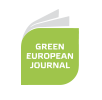As a child of twelve, I was a witness of the invasion, being in Prague and Bratislava with my parents, attending Slavic scientific gatherings. The morning when we had to leave Bratislava, we met tanks on the streets and forbidden exit from the country.
On TV and radio was the battle of the journalists, informing that their country had been attacked by Soviet Union, calling the people to raise and give a resistance. Demonstrations and brutality against young people…
In few days, the media stayed quiet, and all the foreigners were asked to leave. Passing the frontier, a Soviet officer was checking our passports, being very polite and smiling. In the bushes around we saw the pipes of tanks. We left Czechoslovakia speechlessly, knowing that we were leaving an occupied country.
It was my first experience with the power of the weapon and tremendous historical injustice when the stronger state stepped on the sovereignty of the weaker one. Years later, the Czechs and Slovaks got independence, were embraced by EU and live in peace.
But the European peace project is not finished until Balkan countries overcome historical unjustices and join EU. My country Macedonia, as part of that region, is suffering from irrational blockades even to start the EU negotiations for 27 years, although it was the only Yugoslav republic getting independence peacefully and has citizens’ support for euro-integration over 80%.
Latin statement says: Historia est magistra vitae. I wonder, is it still valuable?
Liljana Popovska is president of the DOM party and member of the Macedonian Parliament.

















